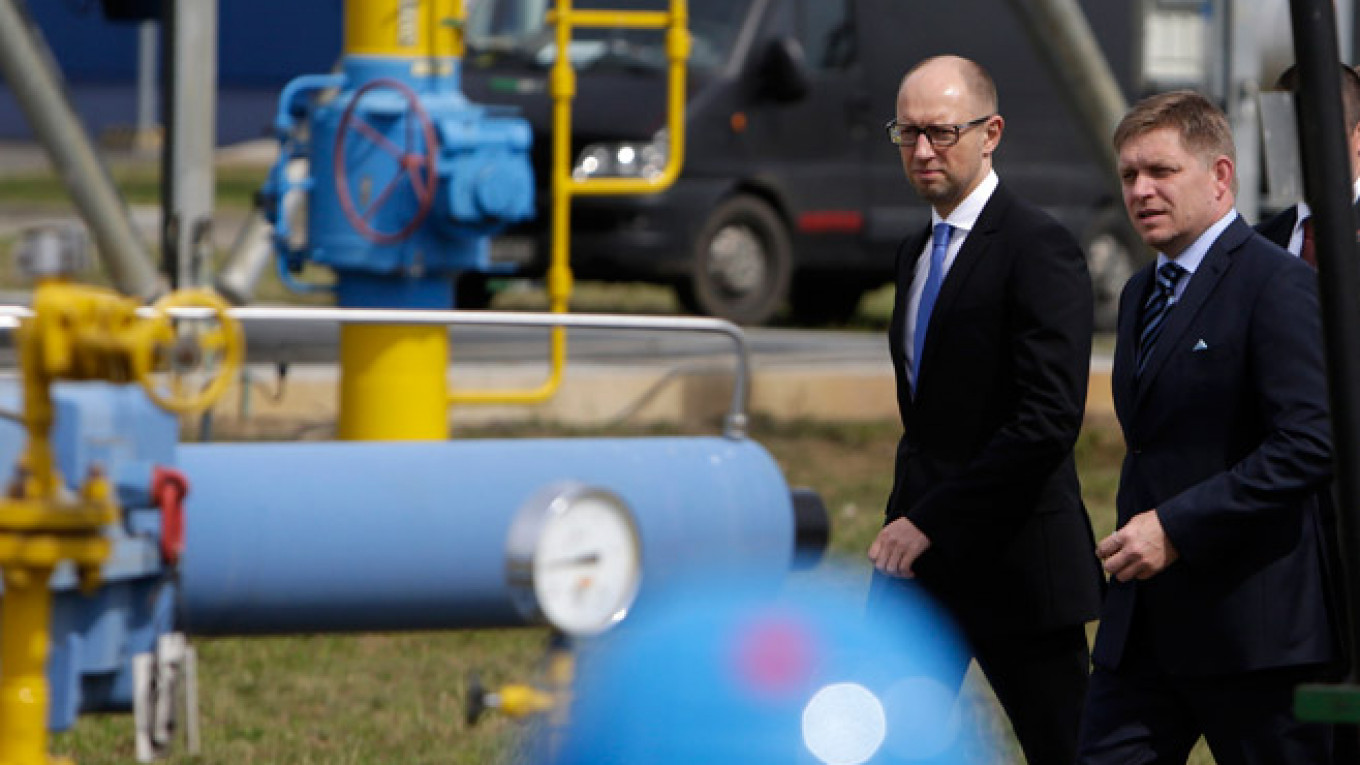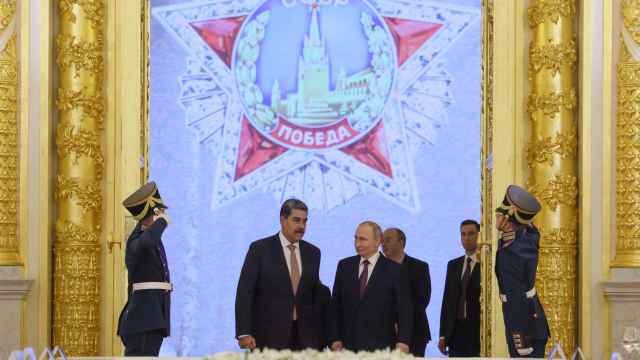Before the current cease-fire in Ukraine, Aug. 27 marked a different sort of breakthrough in the crisis, as Russia, Ukraine and the EU agreed to restart stalled negotiations on a new gas contract this month.
The gas dispute centers around Ukraine's failure to pay more than $5 billion of debt for gas already delivered by Gazprom. Ukraine not only disputes this figure but took umbrage at the decision by Gazprom to increase prices from $268 in the first quarter of 2014 to $385 in April and $485 in June.
The first price hike was ostensibly a result of a failure to abide by a December 2013 agreement to pay for gas on time. The second increase was caused by the lapsing of a 2010 agreement that offered a gas discount to Ukraine in return for Russia maintaining a naval base in Crimea.
However, Gazprom's battle to increase prices predates the current conflict. Russia wants Ukraine to pay market prices for its gas, not the subsidized rates applicable to Customs Union members. Steps in this direction have been ongoing since the 1990s and gained international attention in 2006 and 2009 when Russian gas exports to Ukraine were cut off, as they have been again since June.
This is a concern for the EU because of the broader Ukraine-Russia conflict, but also because the previous response from Ukraine was to divert some of the EU's Russian gas that transited through the country to domestic customers.
In the current gas negotiations, efforts to resolve the issue have been ongoing since the middle of April. There is no quick or easy fix, with both sides sticking to their guns, but it is likely that any settlement reached in the coming months will only kick the can further down the road.
All sides are aware they need a short-term solution, however, before winter descends on Europe and gas demand spikes. The EU needs Russian gas and much political importance is attached to security of supply. This is an interdependency in which Russia is equally concerned about security of demand.
Russia's reputation as a gas supplier is also on the line. Another gas crisis — whoever is to blame — will add further fuel to the fire for those in Europe who are pushing for more coal, more renewables, more gas from anywhere but Russia.
Ukraine's position is weaker. It will not encounter a charitable Russia when it comes to gas pricing or debt relief. The EU may well help with the financing of debt payments to Gazprom. However, the current price for Russian gas in Ukraine is far higher than the average price paid by EU member states.
Russia may be then be amenable to a slower transition toward a market price if debts are cleared with Gazprom, which could lead to an initial price cut. Meanwhile, the beleaguered South Stream gas pipeline is set to remove Ukraine as a transit state for Russian gas destined for EU customers, if the EU gives it the green light. Transit has dropped from 80 percent of EU gas imports five years ago to 50 percent now.
Losing the remaining $3 billion Ukraine receives in transit revenues when the contract ends in 2019 would be a significant blow, and Ukraine is likely to remain heavily dependent on Russian gas, so a short-term fix may store up longer-term issues.
Though this has been an unpredictable war so far, gas negotiations are not inextricably linked with the negotiations about the broader conflict, and no party wants an interruption of supplies to European customers. Mooted sanctions exclude the Russian gas sector.
Therefore, discussion may progress at a different pace and independently from wider conflict resolution. History suggests, however, that mutual interests are not enough to prevent Russia and Ukraine holding back on concessions until it is too late. A last-minute compromise and the narrow aversion of yet another gas crisis may be the best-case scenario.
Tomas Maltby is a lecturer in International Politics at King's College London.
A Message from The Moscow Times:
Dear readers,
We are facing unprecedented challenges. Russia's Prosecutor General's Office has designated The Moscow Times as an "undesirable" organization, criminalizing our work and putting our staff at risk of prosecution. This follows our earlier unjust labeling as a "foreign agent."
These actions are direct attempts to silence independent journalism in Russia. The authorities claim our work "discredits the decisions of the Russian leadership." We see things differently: we strive to provide accurate, unbiased reporting on Russia.
We, the journalists of The Moscow Times, refuse to be silenced. But to continue our work, we need your help.
Your support, no matter how small, makes a world of difference. If you can, please support us monthly starting from just $2. It's quick to set up, and every contribution makes a significant impact.
By supporting The Moscow Times, you're defending open, independent journalism in the face of repression. Thank you for standing with us.
Remind me later.






